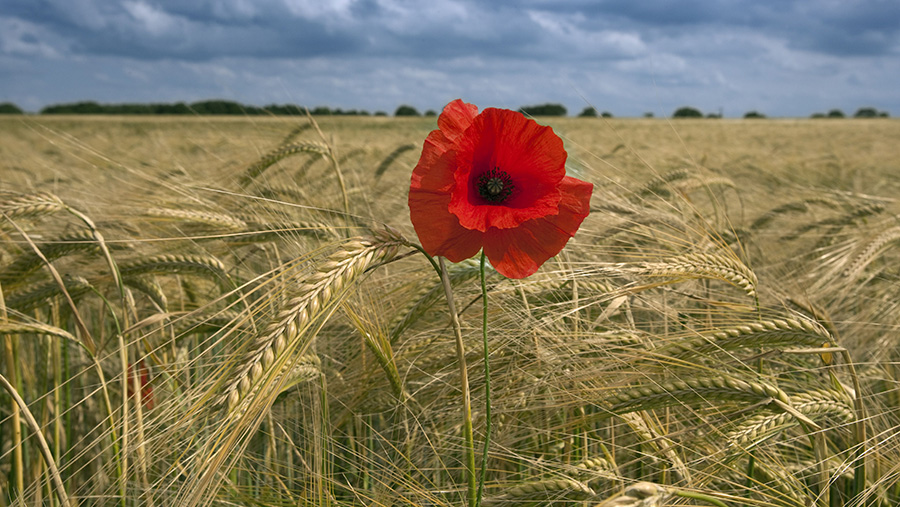Opinion: Take a moment to remember farmers who died in the Great War
 © FLPA/REX/Shutterstock
© FLPA/REX/Shutterstock My wife and I recently returned from a trip to the Great War battlefields of France and Belgium. It’s something that I’ve planned for a number of years and ties in with the centenary of the end of the war in November of this year.
Standing underneath the Menin Gate in Ypres, which holds the names of 54,613 Commonwealth soldiers lost in Flanders with no known grave, while the last post was played, was among the most moving experiences of my life.
See also: We farmers just bottle up our worries
My great-grandfather, like so many rural lads at the time, was among the first rush of volunteers in autumn 1914, answering Lord Kitchener’s famous call to arms a few weeks short of his 18th birthday.
 Will Evans farms beef cattle, arable crops and a free-range egg unit on 200ha near Wrexham, North Wales.
Will Evans farms beef cattle, arable crops and a free-range egg unit on 200ha near Wrexham, North Wales. What an adventure it must have seemed for them back in those heady days, when it was all supposed to be over by Christmas.
He returned home a very different man four years later, having been badly wounded first at Loos, and then the Somme, and having seen a staggering number of his friends and comrades lost.
He was one of the lucky ones. More than a million British lives were lost during the Great War, and only 52 villages in the entire country have no war memorials.
An estimated 170,000 farmers and agricultural labourers served in uniform, and the impact on rural communities lasted for generations, with so many fathers, sons, husbands, and brothers gone, and the country changed forever.
It was an eerie feeling standing on the spot where my great-grandfather and his fellow 9th Royal Welsh Fusiliers left their trenches on the morning of 2 July 1916 and charged up the gently rolling slope, over the shattered remnants of the 34th Division and into the German guns.
What must these men from sleepy rural villages and farms have thought? The noise and turmoil would surely have been beyond their comprehension as the impact of millions of high-explosive shells shook the ground beneath their feet.
At the last moments they must have thought of their farms and worried about how their families were managing without them.
Did they wonder how the crops were doing? Did hearing the skylarks singing far above the trenches, during the lulls in the bombardments, bring back happy memories of a more peaceful time?
In my research, I found the following quote from private Leslie Bell, a 19-year-old farmer’s son, serving with the Royal Inniskilling Fusiliers, who described his thoughts as he waited for zero hour:
“It was hard to know what the men’s feelings were. Everyone was in a daze with the heavy gunfire. I myself sadly thought of home.
“At this time, it would be milking time. The cows would be coming in from the meadows. And everything would be lovely and peaceful in our village.”
If you get the chance this centenary year, I urge you to find out more about family members, or local lads who served. Get beyond the grainy black and white photo in the bottom of a drawer.
It’s never been easier to research a soldier, with countless online resources available.
Visit the village war memorial and put a poppy there. It’s the very least that any of us can do. They deserve our eternal thanks and remembrance.
